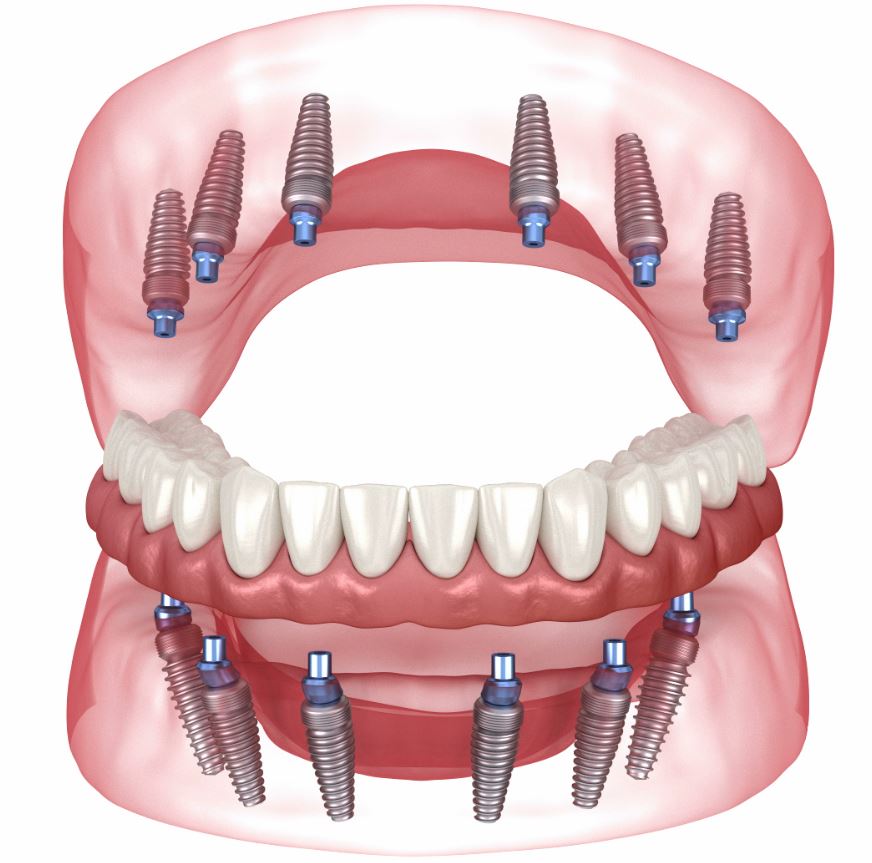Tooth Extraction Cost and Recovery
Tooth extraction is a dental procedure where a tooth is completely removed from its alveolus, often referred to as “pulling” the tooth. The procedure is normally performed by a general dentist, oral surgeon or periodontist.
Extraction is a short outpatient procedure. Depending on the case, local, general or intravenous anesthesia or any combination of these may be used. The need for tooth extraction is necessitated by a number of factors, some of which include severe decay, infection or overcrowding.
Some patients undergoing orthodontic treatment, such as braces, one or two teeth need to be extracted to make room for other teeth to align.
Complete Missing Teeth with Implants
In Andepol Antalya Dental Clinic, your jaw structure and dental health are examined in detail with advanced technology. Dental Implants can replace your empty teeth in an aesthetic and functional way.
Extractions can be classified as simple and surgical. Simple extractions are performed to remove accessible teeth, while surgical extractions are more complex.
It is necessary for teeth that are damaged, impacted or embedded in the gum line. Teeth may also be extracted when they are severely decayed, have excessive periodontal disease or are damaged beyond repair.
Incorrect positioning, such as impacted teeth or orthodontic preparation, may also require extraction.
Missing Tooth Solutions
The removal of a single tooth can lead to complications such as chewing difficulties, problems with the jaw joint and movement of neighboring teeth. It can have a profound impact on overall dental health.
To avoid the risks, dentists advise patients to explore alternatives to tooth extraction and recommend solutions to fill the gap created by the extracted tooth to maintain oral aesthetics and function.

Full Mouth Restoration
Lifestyle Changes and Monitoring Recovery
Avoid smoking for at least 72 hours, as it will interfere with healing and put you at risk of developing complications such as dry socket. Avoid alcohol, especially when taking painkillers or antibiotics.
Mild swelling, pain and a small amount of bleeding are normal for the first few days. If you experience severe pain, heavy bleeding, persistent swelling, fever or signs of infection, contact your dentist immediately.
By following these aftercare measures, you can promote healing, reduce the risk of complications and return to your daily activities as soon as possible. Always contact your dentist if you experience any problems during your recovery.
Foods to Avoid
Avoid hard and crunchy foods. Chips, nuts, raw vegetables and similar foods can irritate the extraction site.
Avoid spicy or acidic foods. These can cause discomfort or irritation. Limit yourself to cold or lukewarm foods and drinks, as hot drinks and foods can be bad for the healing process.
Sticky or chewy foods such as caramel or chewing gum can stick to the extraction site. Chew on the opposite side of the mouth to avoid disturbing the wound. Gradually resume eating solid foods as healing takes place, normally after the first week.
Contact us
For Free Consultation and Price Information
Quick Response Times
7/24 Support
Dental treatment is an important step for a healthy smile. Our clinic aims to provide you with the best service with its expert staff and modern equipment. We keep you informed at all stages of your treatment process